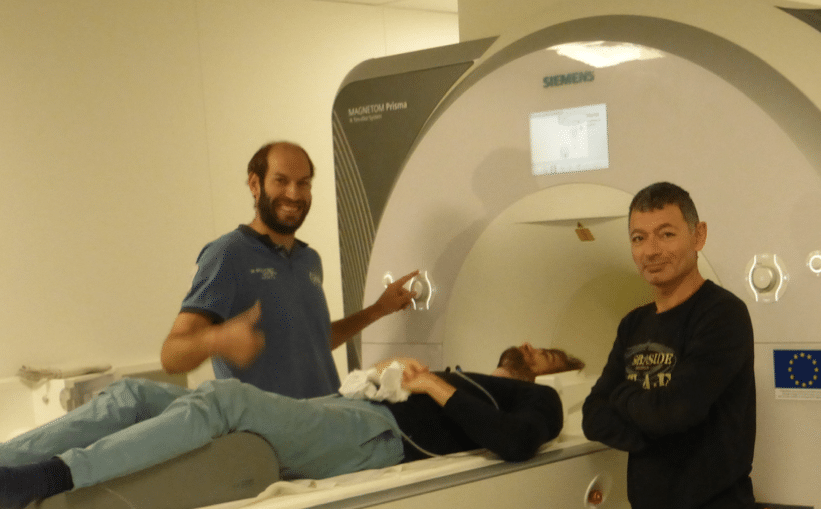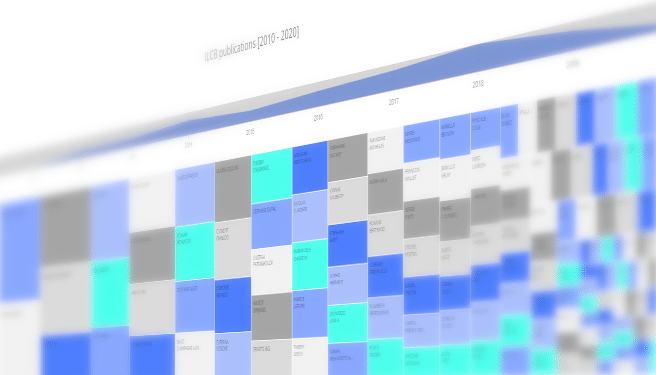
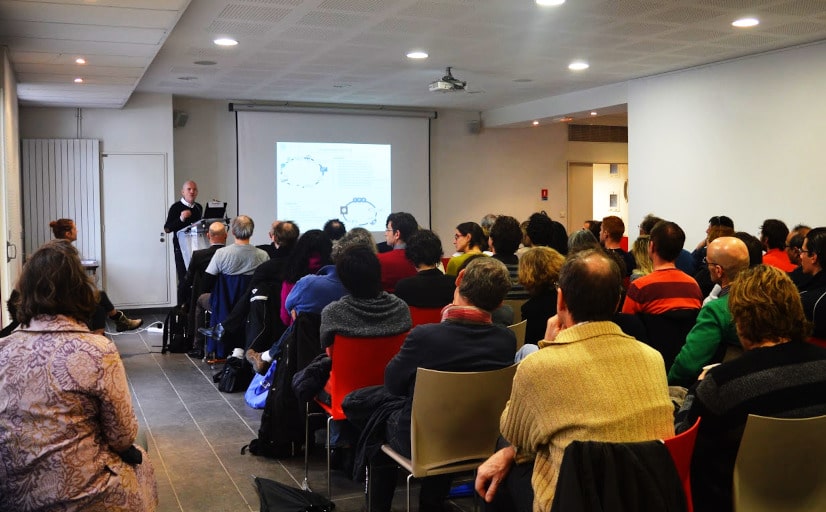
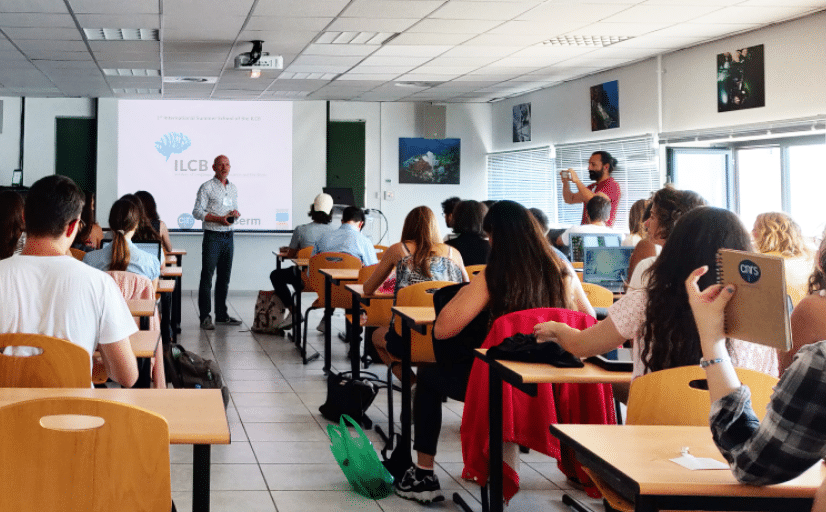
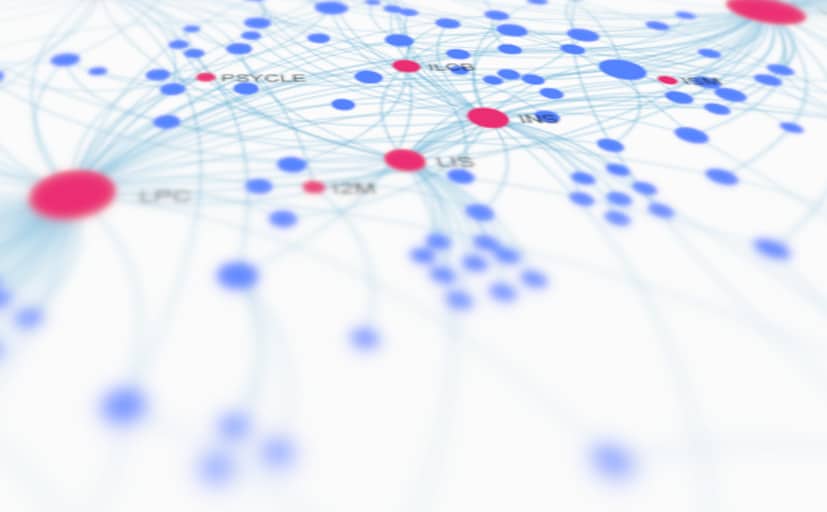
FEATURED PUBLICATIONS
Speaking to a common tune: Betweenspeaker convergence in voice fundamental frequency in a joint speech production task Vincent Aubanel, Noël Nguyen
2020 PLOS/ONE
read more >>
Learning to Read and Dyslexia: From Theory to Intervention Through Personalized Computational Models Johannes C. Ziegler, Conrad Perry, Marco Zorzi
2020 Current Directions in Psychological Science
read more >>
Error-based learning and lexical competition in word production: Evidence from multilingual naming Elin Runnqvist, Kristof Strijkers, Albert Costa
2019 PLOS/ONE
read more >>
Constraints on the lexicons of human languages have cognitive roots present in baboons (Papio papio) Emmanuel Chemla, Isabelle Dautriche, Brian Buccola, and Joël Fagot.
2019 PNAS
read more >>
High-fidelity copying is not necessarily the key to cumulative cultural evolution: a study in monkeys and children Carmen Saldana, Joël Fagot, Simon Kirby, Kenny Smith, Nicolas Claidière
2019 Proceedings of the royal society B
read more >>
Bringing together experts in linguistics, neuroscience, psychology, medicine and computer science to understand and to model the way that language functions.
The objective is to create a generic model of the processing of language and its cerebral bases.
SUMMER SCHOOL
The 3d Edition of the ILCB Summer School offers Introductory, Intermerdiate and Advanced Classes in four core fields of Cognitive Science, reflecting the expertise of the Institute.
read more >>
PhD PROGRAM
An interdisciplinary focus on language research, with interdisciplinary theory and practice trainings at basic and advanced level courses in all relevant disciplines.
read more >>
MASTER
The MaSCo, a new MA in Cognitive Science, provides an advanced scientific curriculum on human cognition, as well as a technological and methodological expertise in evaluation, analysis and modeling of cognitive processes.
read more >>
TRAINING
Advanced trainings are offered to the ILCB members
read more >>
Recent
news and events
Upcoming Events Loop
It seems we can’t find what you’re looking for. Perhaps searching can help.
Post Loop
Do stereotypes on the speaker affect comprehension of irony? Evidence from neural oscillations
Social knowledge about a speaker can include stereotypes on their occupation (e.g., more or less prone to sarcastic remarks). This knowledge constrains ironic interpretation early-on, as revealed by the modulations of synchronization we observed in the upper gamma band in the 150–250 ms time window. There was greater synchronization in the ironic context compared […]
Perception and production of Mandarin tones and vowels
Cheryl Frenck-Mestre (LPL) & Christine Meunier (LPL)
Participation à la conférence SNL 2023 Marseille
Linnea Evanson
Oral presentation at the Joint Action Meeting (JAM; Budapest, July 2023)
Giusy Cirillo (LPL)
Enriched learning: behavior, brain, and computation
The presence of complementary information across multiple sensory or motor modalities during learning, referred to as multimodal enrichment, can markedly benefit learning outcomes. Why is this? Cognitive, neural, and computational theories of enrichment attribute the benefits of enriched learning to either multimodal or unimodal mechanisms. Figure and legend from Mathias, B., & von Kriegstein, K. […]
Nadéra Bureau
For anyone involved with the ILCB, Nadéra Bureau needs no introduction, but… did you know that she holds an Assistant Manager degree and that she has been with us since 2012, first as the administrative and financial manager of the Labex Brain and Language Research Institute (BLRI) and then as the administrative and financial manager […]
Using Video Calls to Study Children’s Conversational Development: The Case of Backchannel Signaling
Kübra Bodur, Mitja Nikolaus, Laurent Prévot, and Abdellah Fourtassi. 2023. Frontiers in Computer Science 5: 1088752 — @HAL Understanding children’s conversational skills is crucial for understanding their social, cognitive, and linguistic development, with important applications in health and education. To develop theories based on quantitative studies of conversational development, we need (i) data recorded in naturalistic […]
Journée scientifique annuelle du centre IRM: Neuroimaging beyond the cortex
Elin Runnqvist (LPL), Olivier Coulomb (INT), & Marie-Hélène Grosbras (LNC)
Physiology of a Conversation v2: Discussion with a human or an autonomous agent
Thierry Chaminade (INT)
Automatic Detection for Bioacoustics
Ricard Marxer (LIS)

